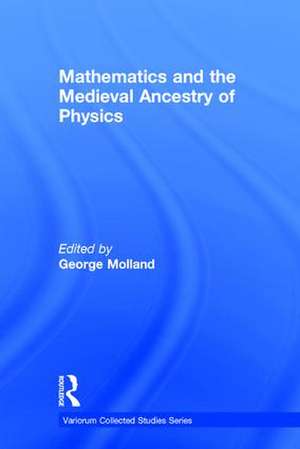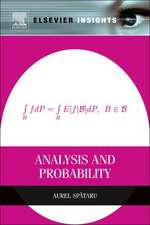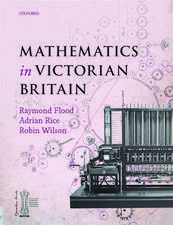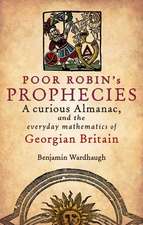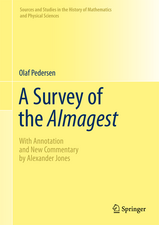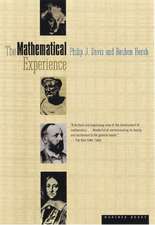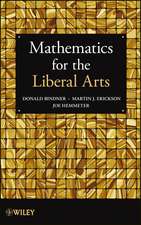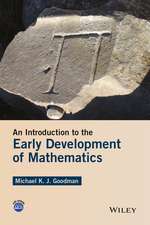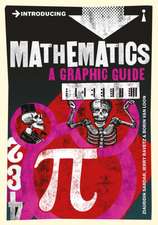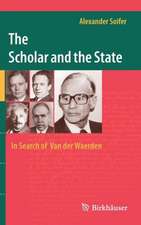Mathematics and the Medieval Ancestry of Physics: Variorum Collected Studies
Autor George Mollanden Limba Engleză Hardback – 13 apr 1995
Din seria Variorum Collected Studies
-
 Preț: 313.38 lei
Preț: 313.38 lei -
 Preț: 311.41 lei
Preț: 311.41 lei -
 Preț: 299.55 lei
Preț: 299.55 lei -
 Preț: 325.68 lei
Preț: 325.68 lei -
 Preț: 406.12 lei
Preț: 406.12 lei -
 Preț: 311.18 lei
Preț: 311.18 lei -
 Preț: 325.31 lei
Preț: 325.31 lei -
 Preț: 396.01 lei
Preț: 396.01 lei - 9%
 Preț: 1039.89 lei
Preț: 1039.89 lei -
 Preț: 266.20 lei
Preț: 266.20 lei -
 Preț: 343.34 lei
Preț: 343.34 lei - 9%
 Preț: 938.10 lei
Preț: 938.10 lei -
 Preț: 351.48 lei
Preț: 351.48 lei - 9%
 Preț: 938.86 lei
Preț: 938.86 lei -
 Preț: 335.37 lei
Preț: 335.37 lei - 9%
 Preț: 937.14 lei
Preț: 937.14 lei -
 Preț: 351.42 lei
Preț: 351.42 lei -
 Preț: 320.00 lei
Preț: 320.00 lei - 38%
 Preț: 766.84 lei
Preț: 766.84 lei - 23%
 Preț: 315.48 lei
Preț: 315.48 lei - 36%
 Preț: 740.06 lei
Preț: 740.06 lei - 34%
 Preț: 764.20 lei
Preț: 764.20 lei - 39%
 Preț: 684.75 lei
Preț: 684.75 lei - 29%
 Preț: 247.40 lei
Preț: 247.40 lei - 37%
 Preț: 488.89 lei
Preț: 488.89 lei - 38%
 Preț: 766.91 lei
Preț: 766.91 lei - 34%
 Preț: 769.51 lei
Preț: 769.51 lei - 38%
 Preț: 769.85 lei
Preț: 769.85 lei - 36%
 Preț: 823.43 lei
Preț: 823.43 lei - 25%
 Preț: 225.28 lei
Preț: 225.28 lei - 25%
 Preț: 225.54 lei
Preț: 225.54 lei - 34%
 Preț: 767.07 lei
Preț: 767.07 lei - 34%
 Preț: 764.20 lei
Preț: 764.20 lei - 34%
 Preț: 736.38 lei
Preț: 736.38 lei - 34%
 Preț: 738.43 lei
Preț: 738.43 lei - 25%
 Preț: 226.52 lei
Preț: 226.52 lei - 33%
 Preț: 491.66 lei
Preț: 491.66 lei - 34%
 Preț: 485.78 lei
Preț: 485.78 lei - 34%
 Preț: 485.78 lei
Preț: 485.78 lei - 38%
 Preț: 766.34 lei
Preț: 766.34 lei - 36%
 Preț: 739.17 lei
Preț: 739.17 lei - 31%
 Preț: 473.94 lei
Preț: 473.94 lei - 18%
 Preț: 843.63 lei
Preț: 843.63 lei - 38%
 Preț: 774.91 lei
Preț: 774.91 lei - 38%
 Preț: 769.92 lei
Preț: 769.92 lei - 34%
 Preț: 764.20 lei
Preț: 764.20 lei - 50%
 Preț: 488.81 lei
Preț: 488.81 lei - 36%
 Preț: 488.49 lei
Preț: 488.49 lei - 34%
 Preț: 769.10 lei
Preț: 769.10 lei - 38%
 Preț: 766.99 lei
Preț: 766.99 lei
Preț: 488.42 lei
Preț vechi: 774.54 lei
-37% Nou
Puncte Express: 733
Preț estimativ în valută:
93.47€ • 97.22$ • 77.17£
93.47€ • 97.22$ • 77.17£
Carte tipărită la comandă
Livrare economică 14-28 aprilie
Preluare comenzi: 021 569.72.76
Specificații
ISBN-13: 9780860784708
ISBN-10: 0860784703
Pagini: 350
Dimensiuni: 150 x 224 mm
Greutate: 0.6 kg
Ediția:1
Editura: Taylor & Francis
Colecția Routledge
Seria Variorum Collected Studies
Locul publicării:Oxford, United Kingdom
ISBN-10: 0860784703
Pagini: 350
Dimensiuni: 150 x 224 mm
Greutate: 0.6 kg
Ediția:1
Editura: Taylor & Francis
Colecția Routledge
Seria Variorum Collected Studies
Locul publicării:Oxford, United Kingdom
Cuprins
Contents: An examination of Bradwardine’s geometry; Campanus and Eudoxus: or, trouble with texts and quantifiers; Shifting the foundations: Descartes’s transformation of ancient geometry; Implicit versus explicit geometrical methodologies: the case of construction; The geometrical background to the ’Merton School’; Richard Swineshead and continuously varying quanitites; John Dumbleton and the status of geometrical optics; Cornelius Agrippa’s mathematical magic; Ancestors of physics; Colonizing the world for mathematics: the diversity of medieval strategies; Roger Bacon as magician; Nicole Oresme and scientific progress; Medieval ideas of scientific progress; Mathematics in the thought of Albertus Magnus; The atomization of motion: a facet of the scientific revolution; Continuity and measure in medieval natural philosophy; The Oresmian style: semi-mathematical, semi-holistic; Index.
Recenzii
'This book contains a wealth of information in 17 skillfully crafted individual chapters...a valuable addition to the literature on the history of mathematics. Its depth and detail give compelling evidence that modern mathematical sensibility is far different from that of the medieval world.' Choice 'Molland has a broad and deep acquaintance with a wide range of medieval and early modern mathematical and physical work, his judgment is typically sound ...and he is often able to present a convincing picture of ’how a theory actually appeared integrally to the minds of its propagators’. That..is what historians of medieval mathematics and science should aim for. ' Vivarium, Vol. XXXVI, No. 2
Descriere
The central theme of this volume lies in the medieval consciousness of mathematics, and the variety of strategies adopted to apply it in other areas, notably natural philosophy. In diachromic terms, Dr Molland considers ways in which ancient mathematics (particularly geometry) was assimilated in the Middle Ages, and how it was radically transformed in the 17th century, especially by Descartes. A pervasive concern is with ideas of scientific progress: the author argues that medieval commentatorial and disputational modes encouraged probing attitudes to existing knowledge, aimed at deepening individual understanding, rather than more aggressive endeavours to advance public knowledge characteristic of later periods. What brought about this change is the subject of several studies here; others form more specifically on individual scholars, in particular the important figure of Roger Bacon.
